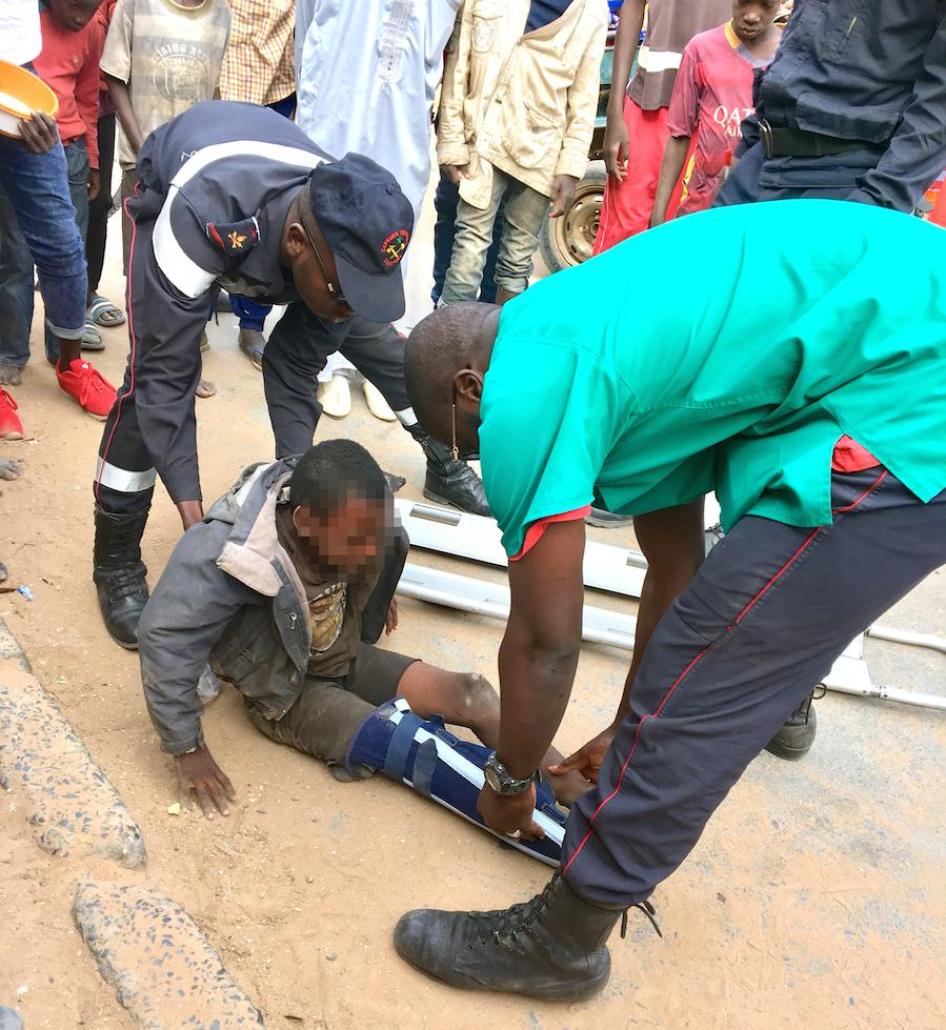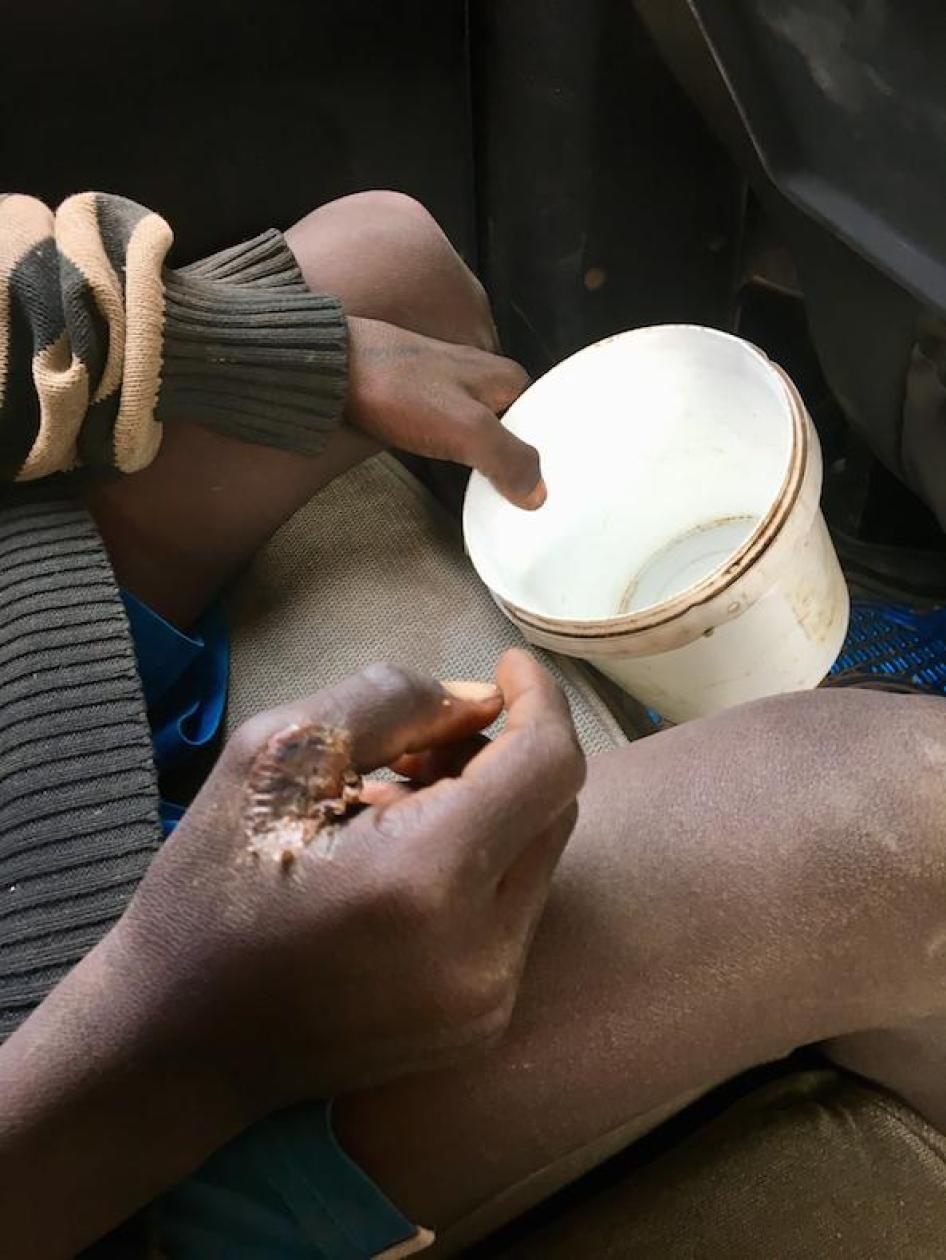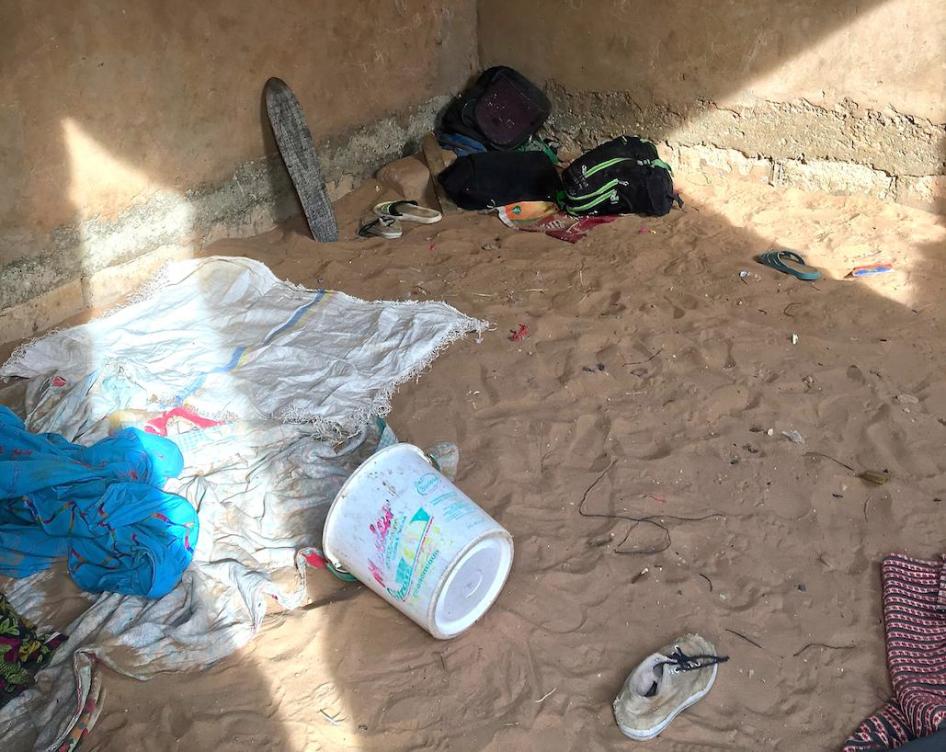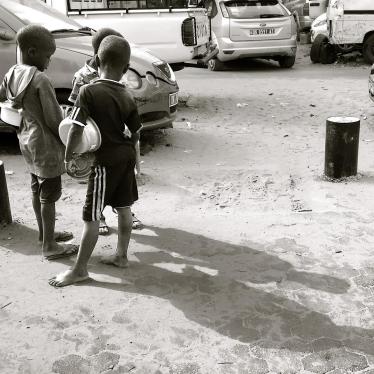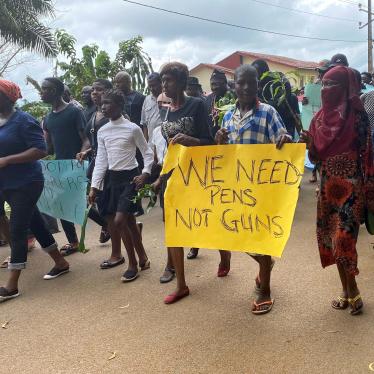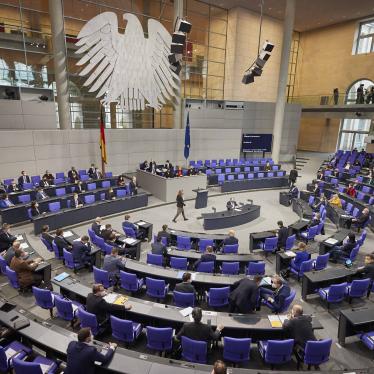On January 13, I saw a boy who had been hit by a motorcycle lying on the street in the town of Louga. He was sobbing and holding his leg, which appeared to be broken. But this was no simple accident. This child was one of over 100,000 talibés in Senegal whose Quranic teachers send them out every morning to beg.
After the talibé was taken to the hospital, I went with my research partner from the Senegalese human rights coalition PPDH (Plateforme pour la Promotion et la Protection des Droits Humains) to find the child’s Quranic teacher. While his 20 talibés were begging in the streets, he was fast asleep in the Quranic school (daara). Another talibé from the daara told us that they had to bring back 250 francs CFA (US $0.40) each day. This is not education. This is exploitation, coupled with negligence – the child who brought us to the daara also had an infected, untreated wound on his hand.
Candidates for Senegal’s upcoming presidential election should keep in mind that talibé children are suffering and dying – both in the streets and in their still-unregulated daaras, where many endure forced begging and abuse. As the election nears, candidates and their political parties should make clear where they stand on this issue.
Not only are tens of thousands of talibés in Senegal forced to beg daily for food or money by their Quranic teachers (marabouts), putting them at risk in the streets, but many also suffer from physical abuse. An upcoming PPDH and Human Rights Watch report will detail numerous cases of talibés beaten, chained up, or sexually abused in daaras, as well as talibé deaths due to abuse or neglect in 2018.
The day after the Louga accident, we met a man in Saint-Louis who had witnessed the death of a talibé in December. “A car ran over him,” he told us. “For three days after seeing that, I couldn’t sleep.” When he tracked down the victim’s daara, the child’s brother – another talibé – told him that the marabout asked the children to bring him 250 CFA each day.
Over the past several years, I’ve visited scores of daaras where children live in horrific conditions, interviewed dozens of abuse victims, and witnessed hundreds of talibés – shoeless, dirty, malnourished or sick – begging in regions across Senegal. I have encountered numerous talibés with scars or bloody wounds, who said they were beaten for failing to deliver money to their marabout.
Senegalese activists have increasingly denounced this abuse, but the talibés’ plight continues to be a blind spot for the government, whose actions have remained limited. The National Assembly has not yet passed the draft law to regulate daaras. Officials rarely act to close daaras that don’t meet health and safety standards. The government program to “remove children from the streets” has had minimal impact: some 300 children were removed from the streets of Dakar in 2018, but there were no accompanying investigations or prosecutions.
Arrests and prosecutions of Quranic teachers for abuse or exploitation have increased nationally, but some judicial officials continue to drop or reduce charges, and the police often fail to investigate. When I discussed the Louga incident with local police and asked about an investigation, the officer grew annoyed. “If victim doesn’t complain to the police, it’s not our responsibility,” he said.
Much of the government’s emergency child protection work is left to regional social services offices, attached to the Justice Ministry, which lack the resources and personnel to fully carry out their mandate. Most offices are staffed by just three or four people, and some have no working vehicle. Some regions – such as Diourbel and Louga – have no government-run centers to shelter child runaways or abuse victims.
Given the scale of the problem, it is crucial for the National Assembly to pass the daara regulation law, and for presidential candidates to elaborate clear proposals on how they plan to instigate real change for talibés. As Mamadou Wane, president of PPDH, recently wrote, “notably absent from the agendas of these [presidential] contenders… is the issue of child begging and abuse.” Senegalese citizens should press for specific commitments.
Once elected, the new government should take action to increase the resources and personnel allocated to child protection services, close down daaras that risk childrens’ health and safety, and hold accountable any Quranic teachers or parents who expose talibés to danger, abuse or exploitation.
Thousands of talibés risk their lives every day in the streets and in abusive daaras. Their situation deserves attention both leading up to and after the presidential election. How many children have to die or suffer harm before authorities act?

